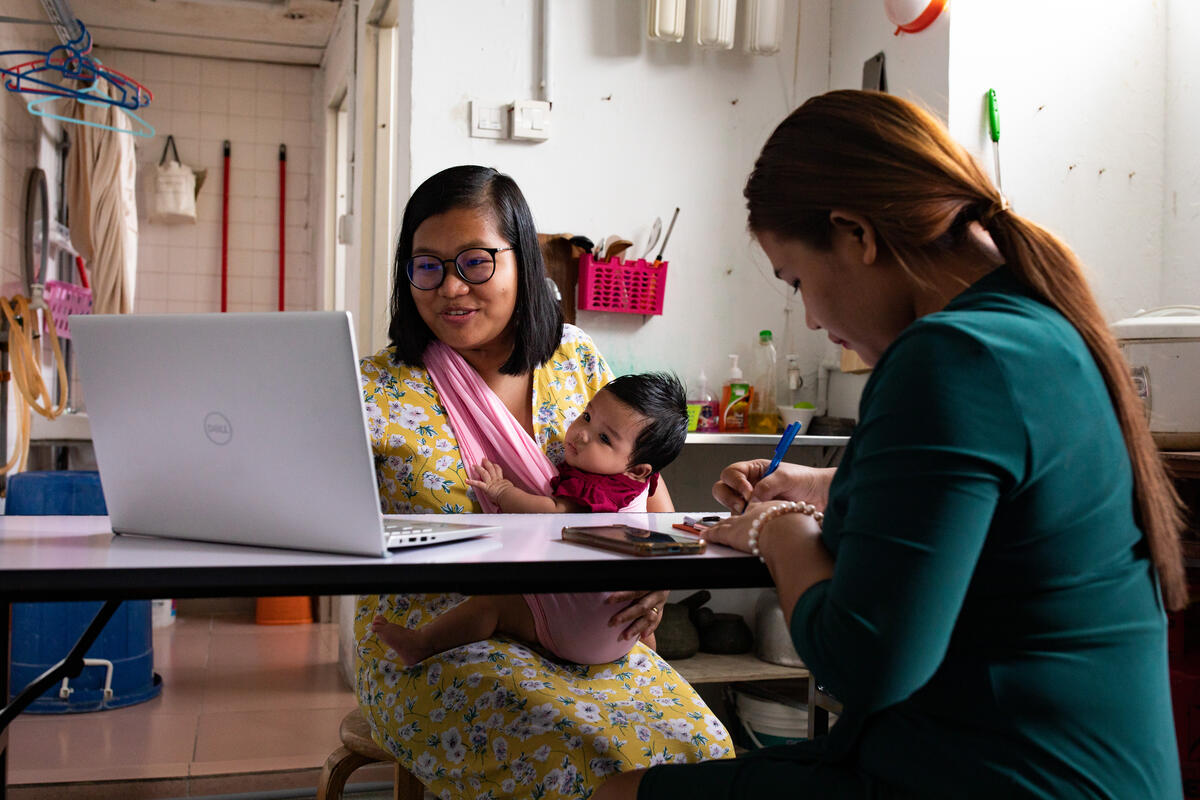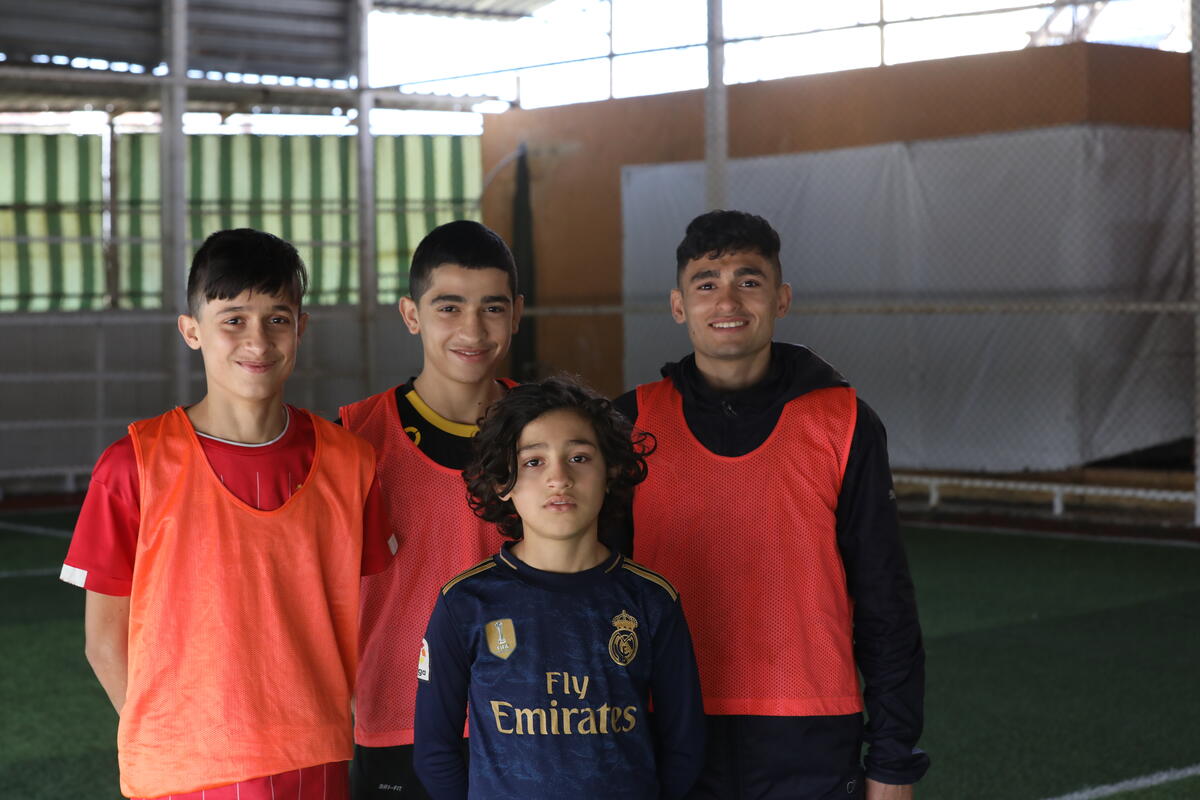UNHCR welcomes draft bill that will let refugee doctors practise in Ireland
UNHCR welcomes draft bill that will let refugee doctors practise in Ireland

DUBLIN, Ireland, February 28 (UNHCR) - The UN refugee agency on Wednesday welcomed draft legislation that will allow refugees who are qualified medical doctors to register and practise in Ireland for the first time.
Qualified refugee doctors are also happy at the initiative, which should come as good news to the Irish Medical Organisation, which says there is a general shortage of medical doctors in Ireland. UNHCR estimates that some 100-200 doctors have gone through the asylum system in Ireland over the past decade, but most have not been able to practise.
The new proposal is included in the draft Medical Practitioners Bill, which is aimed at modernising the profession. Presenting the draft in the Irish parliament on February 23, Health Minister Mary Harney said it included provisions "to help doctors holding refugee status to become registered."
UNHCR Representative in Ireland Manuel Jordão on Wednesday urged members to support the initiative as it moves through its various stages in the Dáil, or parliament. "Integration of its migrant and refugees will be a number one priority for Ireland in the next few years. Although only one of many initiatives, the proposal to help refugee doctors to practise will be of immense benefit for their integration prospects, and of great benefit to Ireland too," he said.
Unable to return home or move easily to another country, refugee doctors frequently have problems acquiring or producing original documents and certificates. They also often face limited opportunities to upgrade their skills to register as doctors in countries of asylum.
At a recent integration conference in Dublin, UNHCR's Guy Ouellet promoted a system for recognising refugee doctors as "a concrete example of a positive step towards refugee integration."
Ouellet, deputy director of UNHCR's Europe desk, said Ireland had put in place important integration measures in areas such as welfare, education, employment, naturalisation, and non-discrimination.
But Ouellet warned that public attitudes were hardening as the number of immigrants increased and said it was critical "to pre-empt this intolerance by supporting a system where the skills and potentials of foreigners, including refugees, could be put to best use."
Ouellet said pilot programmes that showed the value and skills that refugees brought with them could be of great benefit to all. "One example of such a programme," he said, "would be to contact doctors who initially entered as refugees and find out how they have fared, organise them in a group and upgrade their credentials through a specialised programme."
He said the 100-200 doctors estimated to have passed through the asylum system would be a "good initial target group to focus on re-equipping with the necessary upgrades to their already acquired medical skills."
Ouellet was thinking of people like Mona,* a Palestinian former asylum seeker and qualified doctor. "When I arrived here, my degree was recognised but my initial hospital training after graduation was not. The Medical Council didn't allow me to register and there was no help to retrain or redo an internship," she said.
Despite post-graduate medical qualifications from the Royal College of Surgeons in Ireland, Mona has been unable to acquire registration. She recently acquired Irish citizenship.
Mona said she hoped refugees could benefit from the new proposals, but warned that they would still need guidance and assistance to upgrade their skills. "We've waited a long time for change. As a refugee, I wasn't able to leave Ireland to go somewhere else. Refugee status pins you down. No one wants you. It's like a disease," she said.
"I was stuck here with all my registration difficulties. My first concern was my safety, but after a while my dignity suffered, especially not being allowed to prove myself," she added.
* Name changed at her request.
By Steven O'Brien in Dublin, Ireland








